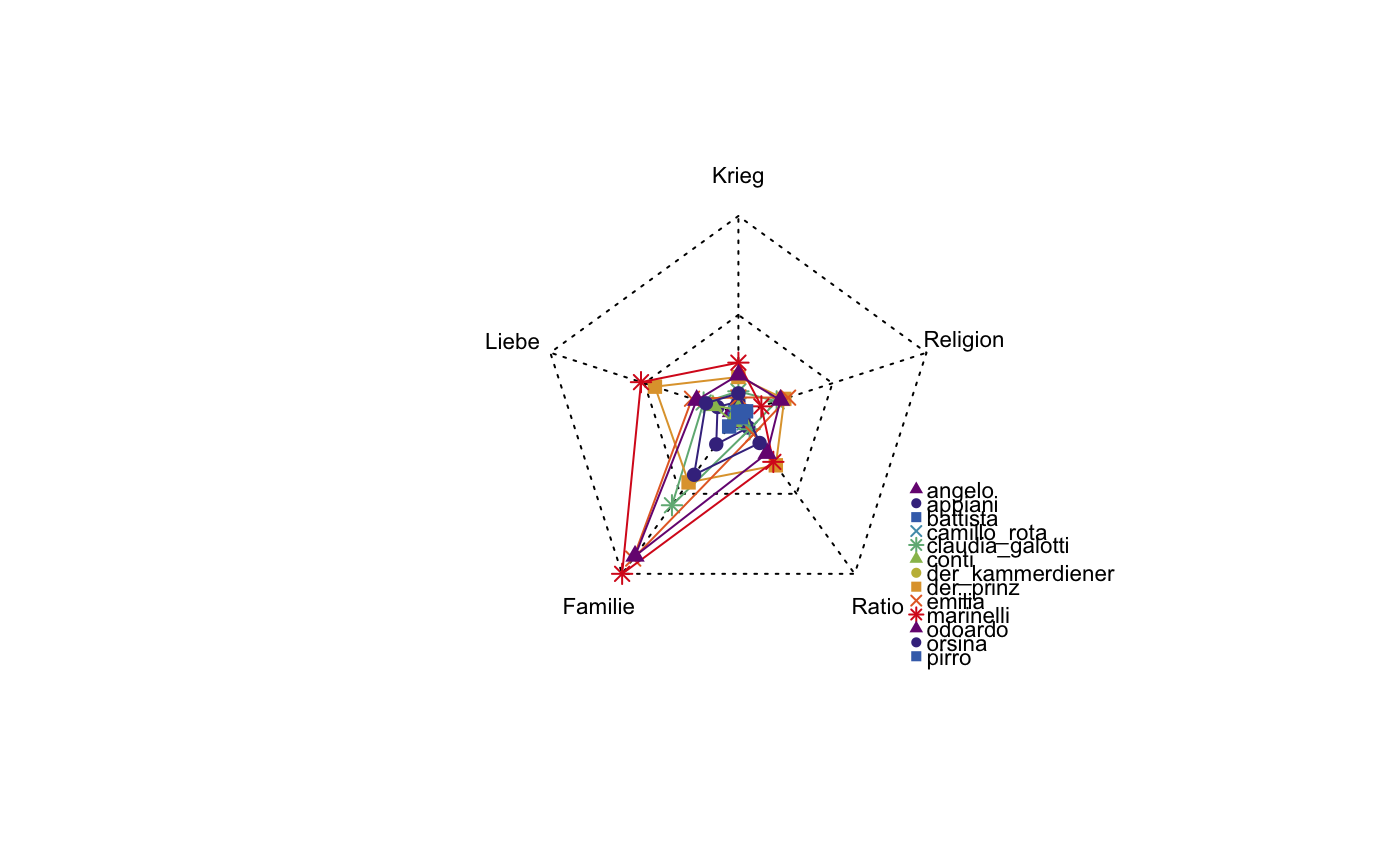Generates spider-web like plot. Spider webs may look cool, but they are terrible to interpret. You should think of using a bar chart to represent the same information. You have been warned.
plotSpiderWebs(dstat, symbols = c(17, 16, 15, 4, 8), cglcol = "black", legend = TRUE, legend.cex = 0.7, legend.pos.x = "bottomright", legend.pos.y = NA, legend.horizontal = FALSE, pcol = qd.colors, ...)
Arguments
| dstat | A data frame containing data, e.g., output from dictionaryStatistics() |
|---|---|
| symbols | Symbols to be used in the plot |
| cglcol | The color for the spider net |
| legend | Whether to print a legend |
| legend.cex | Scaling factor for legend |
| legend.pos.x | X position of legend |
| legend.pos.y | Y position of legend |
| legend.horizontal | Whether to print legend horizontally or vertically |
| pcol | The line color(s) |
| ... | Miscellaneous arguments to be given for radarchart(). |
Value
No value is returned.
Note
radar charts and spider web plots are dangerous, they can easily become misleading. They are in this package for historic reasons, but should not be used anymore.
Examples
data(rksp.0) fnames <- c("Krieg", "Liebe", "Familie", "Ratio","Religion") ds <- dictionaryStatistics(rksp.0, normalizeByField=TRUE, fieldnames=fnames) plotSpiderWebs(ds)#> Warning: spider webs may look cool, but they are terrible to interpret. You should think of using a bar chart to represent the same information. You have been warned.
